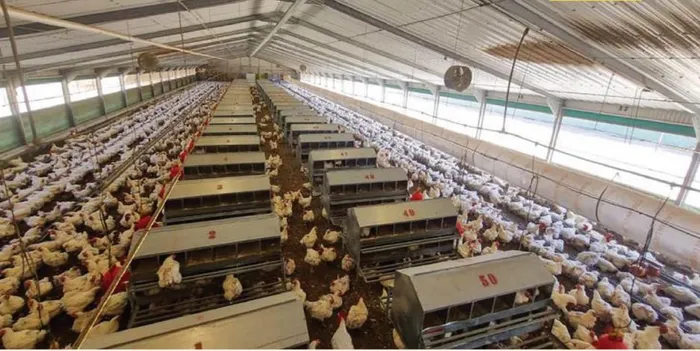Astral Foods calls for government support as bird flu vaccination programme expands
AGRICULTURE

At any one point, Astral runs with about 4 million broiler breeders in stock although the company will not necessarily be vaccinating all of them.
Image: Supplied
Tawanda Karombo
Astral Foods, which is planning to expand its recently approved bird flu vaccination programme, wants the government to ease conditions for such initiatives and to finalize payments of compensation to the industry for birds culled to control diseases in the past few years.
This appeal comes in the wake of mounting challenges within the poultry industry, which has been grappling with heightened biosecurity risks following successive bird flu outbreaks.
Gary Arnold, CEO of Astral Foods, told Business Report in an interview on Tuesday that the company will ramp up its poultry vaccination against bird flu.
This comes after the company on Monday announced that the Department of Agriculture had approved its bird flu vaccination program at one of its farms in the country.
“It's only 5% being vaccinated. We do have plans to expand it. We'll have to (expand it), now that we have firmed up the process with the Department of Agriculture,” Arnold said.
However, the company said it would be helpful if the government sped up compensation payments to the industry for birds culled as a disease control mechanism.
Arnold, nonetheless, reckons that “bio-security is the responsibility of producers” as the government doesn’t have resources and ability to go around to everyone's farm enforcing it.
The government had to aid the industry to enhance bio-security through easing regulatory processes and procedures.
“The government can help through regulatory reforms. The conditions under which we are allowed to vaccinate are very stringent and expensive because you have to comply with all the monitoring and surveillance and this makes it very difficult for everyone to vaccinate,” said Arnold.
The South African Poultry Association has been engaging industry regulators over the past 18 months to thrash out a set of guidelines that the industry believes are less onerous to implement but still enforceable.
The industry is pursuing recognition of conditions around which producers can vaccinate without exposing the whole industry to any unnecessary risk.
This comes at a time when the South African poultry industry is facing heightened biosecurity risks. This has made it imperative for industry players to be extra careful of risks assocxiated with spreading the disease.
“Monitoring and surveillance of flocks is extremely important once they're vaccinated, (but) that is also a cost attached to that, but it is critical to ensure the safety of the livestock in South Africa,” explained Arnold.
But with the approval of the vaccination program for one farm, Astral Foods hopes to “expand this to include other” farms it runs.
Arnold added that the company’s intention was always “to get one blueprint farm going that could guide both the Department of Agriculture and ourselves” on the process.
The vaccination against bird flue costs the company about R2 to R2.50 per bird over its life cycle. It is a necessary cost for Astral which together with other industry players in SA and globally that nolonger have access to bird flue insurance.
“Astral used to pay a premium for bird flu insurance. Now, bird flu insurance is no longer available to any producer in this country and globally… They stopped it after 2023 because of the large claims that they had against them on the severe outbreak in 2023 so that was the last time that insurance cover was available,” Arnold revealed.
At any one point, Astral runs with about 4 million broiler breeders in stock although the company will not necessarily be vaccinating all of them.
Although poultry producers in other countries get compensated when they have to cull livestock as a disease control measure, Astral and other SA poultry producers have not been able to get this compensation from the government since 2017.
“In South Africa we havent been compensated since 2017, when the first outbreak of highly pathogenic Avian influenza was experienced, and that's an ongoing discussion that we have with the Department of Agriculture,” Arnold said.
“The industry should receive compensation, but we have received no money out of the South African government on birds that have previously been called.”
BUSINESS REPORT